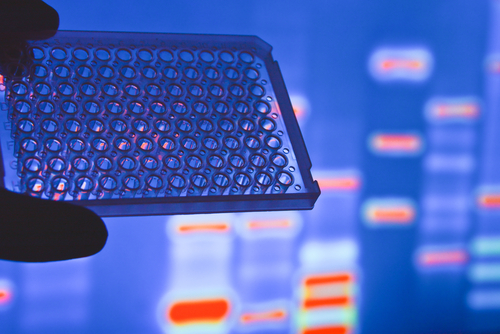Endometriosis development is linked to the occurrence of genetic mutations affecting cancer-related genes, a recent study suggests.
The study, “Clonal Expansion and Diversification of Cancer-Associated Mutations in Endometriosis and Normal Endometrium,” was published at the journal Cell Reports.
Endometriosis is considered a benign gynecologic disease that is characterized by overgrowth of endometrial tissue outside of the uterus. While it remains unclear what causes the uncontrolled proliferation of endometrium cells, genetics has been pointed to as an important risk factor.
Genetic studies have identified several spots on the genetic code that could be involved in the development of the disease. Also, mutations in cancer-related genes identified in ovarian endometriosis have been proposed as the precursors of some types of ovarian cancer.
In this study, Japanese researchers analyzed the genetic landscape of 13 endometriosis lesion samples and 11 normal uterine samples using whole-exome sequencing. With this approach they identified 4,192 genetic variants in all samples (both endometriosis and healthy), which were mostly affecting cancer-associated genes including KRAS, PIK3CA, FBXW7, PPP2R1A, and PIK3R1.
Although the mutated genes were recurrently the same between the two types of samples, the team found that the frequency of the mutations varied significantly. The mutations in cancer-associated genes were much more frequent among endometriosis tissue samples than in uterine healthy tissue.
This finding suggested that endometrial glands were had accumulated more genetic mutations throughout time.
“The identified mutations can be the genomic footprints” that can help trace the “cell lineage [transformation] from ‘‘normal’’ uterine endometrial epithelium [cells lining the outer surface of the organ] to endometriosis and on to certain subtypes of ovarian cancer,” the researchers stated.
To further validate their findings the team performed a new sequencing analysis focused on 84 specific genes previously identified. They analyzed 94 ovarian endometriotic tissue samples collected from 45 women, and 71 normal uterine endometrial samples from 29 subjects with benign gynecologic diseases.
This new analysis confirmed that KRAS and PIK3CA were the most frequently mutated among the targeted genes, and their frequency was higher in endometriosis cases.
To better understand the genetic changes that were occurring, the researchers analyzed 109 isolated endometrial glands collected from the uteri of three endometriosis patients, located at endometriosis lesions sites or unaffected sections.
Interestingly, each gland within the normal uterus of the same woman had different genetic profiles, which goes in accordance with “the sporadic and spontaneous (…) origins during menstrual glandular proliferation cycles,” they said.
This analysis revealed that PIK3CA was the most frequently mutated gene across the single endometrial glands, and other less-frequent mutations in cancer-associated genes, including KRAS and ARID1A, also were present.
The team believes that these findings further support a century-old retrograde hypothesis proposed by John Sampson suggesting that the “origin of endometriosis [is] at genomic level.”

